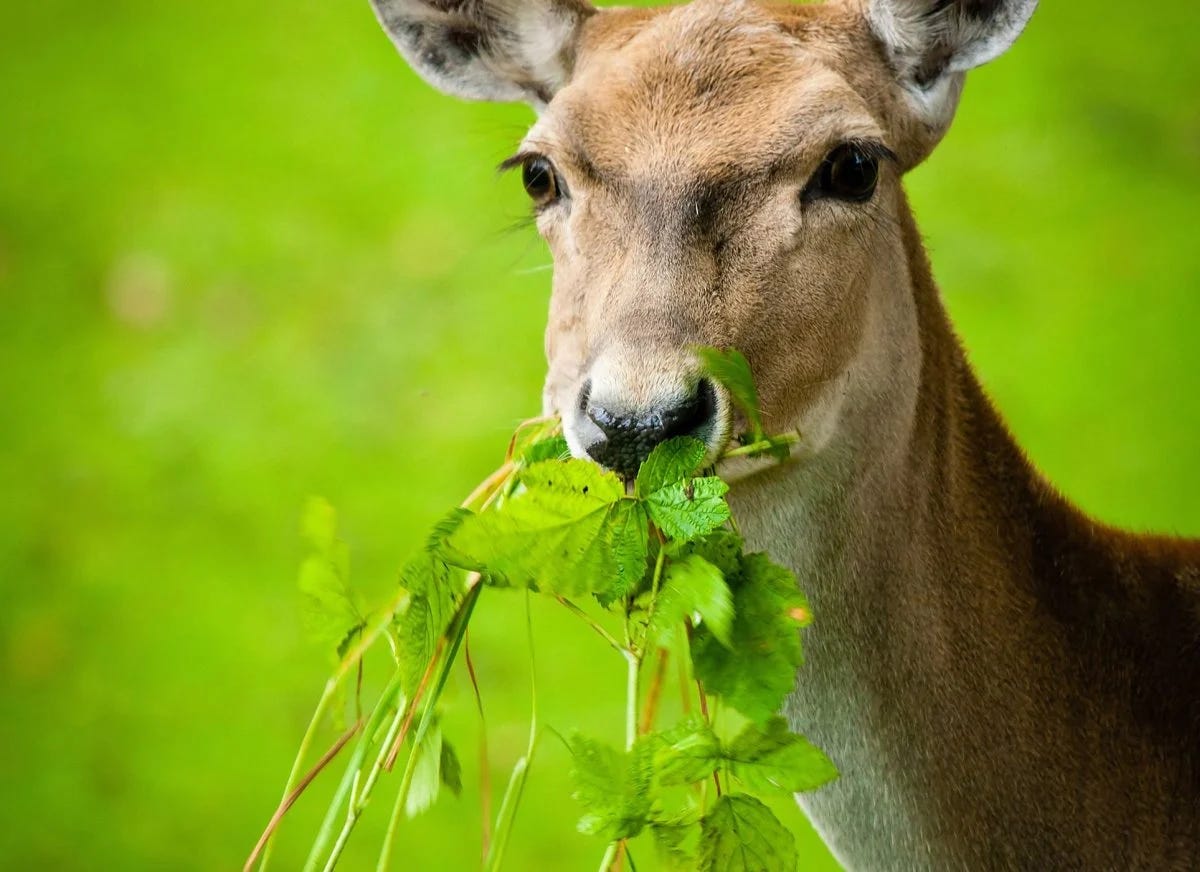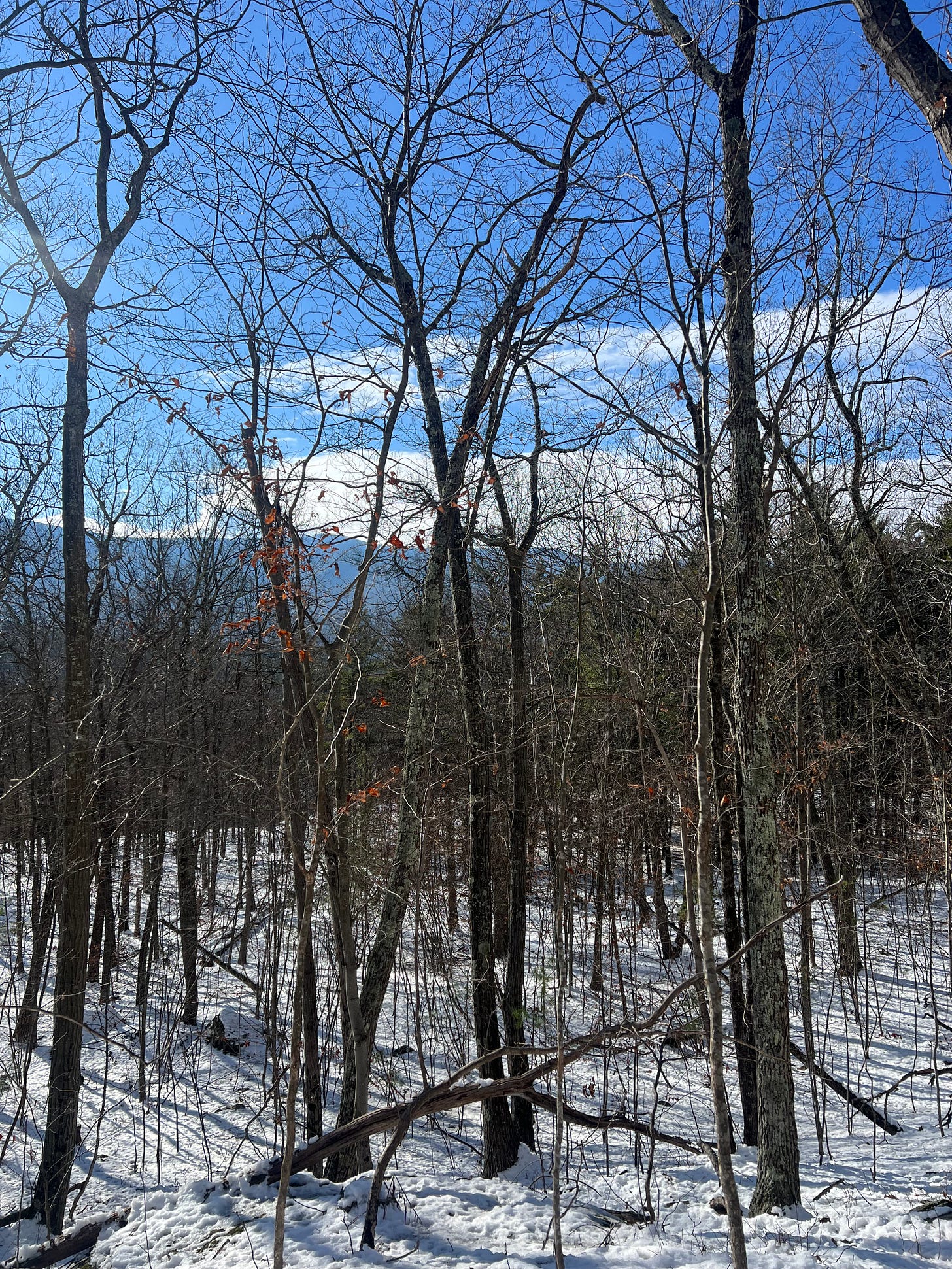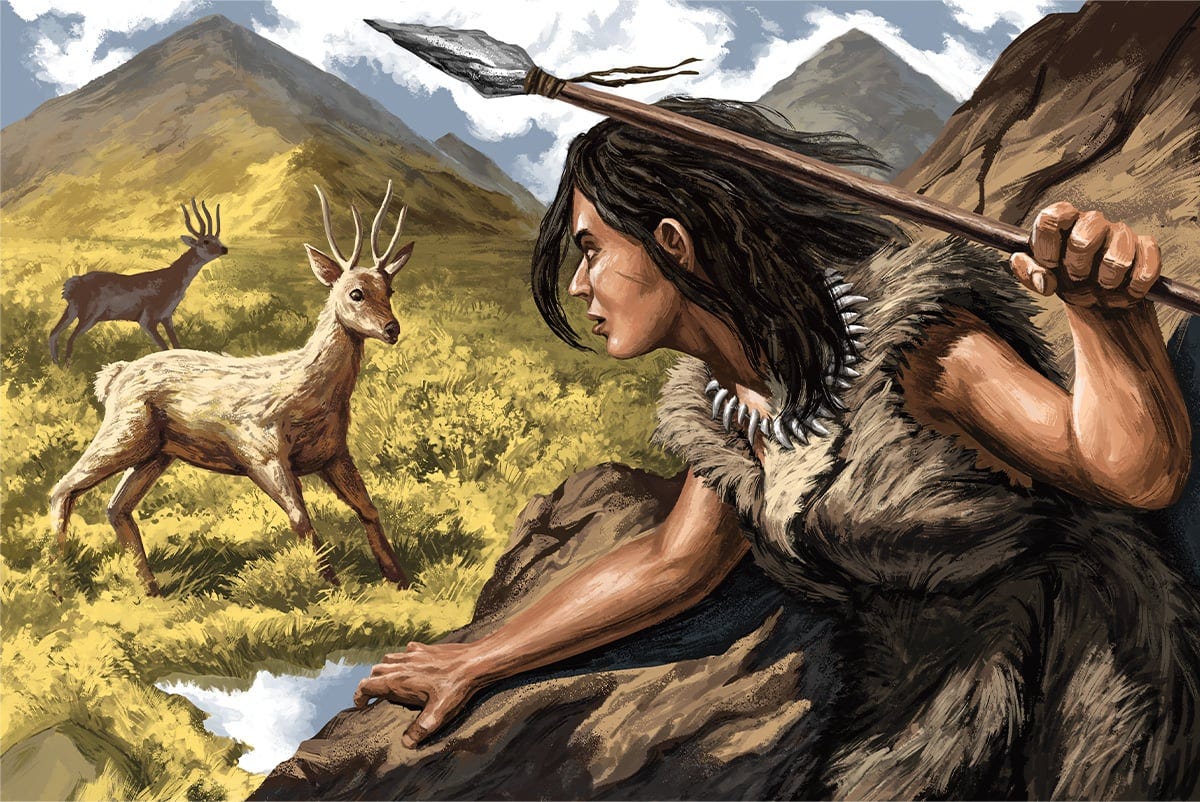I’ve written at length about how to make change. The core of my argument is that structural change is made by raising the cost of the status quo. Short of a well-timed act of political violence, this can only be done via organizing, which is a social—not individual—activity.
This does not mean, however, that individual actions don’t matter; it just means that they cannot change the incentive structure of society as a whole. Individual actions can nonetheless make a big difference, both to you and the world you inhabit. In the interest of offering guidance on individual actions that make a meaningful difference, I’ll be writing a periodic series on the subject.
First on the list: hunting. While it may seem counterintuitive that hunting can make a valuable contribution to ecology and biodiversity, it is in fact a vital task. Let’s talk about why.
It’s deer hunting season in the Northeast, which is a great opportunity to contribute to ecological regeneration. Whitetail deer are wildly overpopulated across the U.S. for a variety of reasons, all of them bad. Humans have locally exterminated their two most important predators—wolves and mountain lions—and turned much of the landscape into an agricultural buffet of corn, hay, and soybeans. Suburban development also favors deer because it replaces dense forests with low growing plants deer can easily access, like grass and landscape shrubs. And to top it all off hunting is increasingly unpopular, with 40% fewer hunters heading out into the woods than in 1980.
As a result, deer numbers have skyrocketed. A healthy, sustainable deer population is roughly 5-18 per square mile. Meanwhile, some areas of the U.S. are currently supporting as many as 151 deer per square mile.
This overpopulation has a profoundly negative impact on the ecosystem. A normal adult deer needs to eat 10+ pounds of vegetation per day, and they naturally have a strong preference for the native plants with which they’ve co-evolved. Those native plants are in turn in steep decline due to over-browsing from deer, along with the usual human stupidities: land development, herbicides, pesticides, invasive species, etc.
This excessive browsing dramatically degrades the forest understory and disrupts natural succession processes that are necessary for ecological regeneration. Trees can’t produce new saplings, low growing bushes are chewed to the ground, and herbaceous plants are mowed into extinction. This damage cascades through the entire food web, reducing biodiversity across the board. For Eastern forest birds, which rely on the seeds and berries produced by native understory plants, whitetail deer represent as big of a threat as climate change.
Clearing out the native understory also creates openings for invasive plants, which deer are far less likely to eat. Autumn olive, one of the worst invasives in the U.S., grows just as tall when deer are present as when they aren’t. Other invasives, like Japanese honeysuckle and Oriental bittersweet, thrive in the areas decimated by deer, transforming the forest into a noxious mess devoid of the life which sustains it. A forest with a deer overpopulation is a functionally dead forest.
Overpopulation is also not good for the deer themselves because it makes them prone to dramatic and agonizing population collapses from hunger and disease. And to top it all off, deer are the primary food source for adult female ticks; lots of deer means lots of Lyme disease.
Why Bother

Now, hunting deer will not change the reasons why they are overpopulated in the first place; only political organizing can do that. But it can make a meaningful local difference in the health of the ecosystem, and that’s not nothing. Even a modest reduction in deer population density has a positive effect on biodiversity, and hunting in general causes behavioral changes in deer that lead them to do less damage. An environment that is degraded but not past the point of regeneration is far better than one incapable of regenerating on its own. Hunting can help make that happen.
The personal benefits of hunting deer are also significant. With a modest amount of effort, you can easily end up with 50+ pounds of delicious red meat in your freezer, plus bones for broth/pets/tools, hide for tanning, fat for cooking or soap, and more.
Direct benefits aside, hunting for your own subsistence changes your relationship to the landscape. You will immediately start to understand the land differently: a forest is no longer just a place to hike, but a key part of your continued existence. You might find that this leads you to take a much stronger interest in the health of the land, and to look at it through the lens of sustainability and regeneration first and foremost.
Here’s an example: Try getting a clean shot at a deer through this.

It’s a secondary forest: essentially a clearcut that was allowed to regenerate on its own. That has led to an excessively high density of trees, which creates a practical problem for you as a hunter.
Now, consider that you share that practical problem with people who have been sustaining themselves via deer hunting in North America for the last 12,000 years. And if you think about how to solve this problem, you might arrive at the same conclusion they did: fire. As a result of applying that solution for thousands of years, North America has become a fire-adapted landscape, and it’s health now depends on it.
Perhaps you’ll take an interest in controlled burning, which can lead to a cascade of ecological benefits. Perhaps you’ll want to learn more about those important plants that deer are over-browsing. Perhaps you’ll want to help bring back some of the biodiversity lost to the deer’s effects. Perhaps you’ll be moved to join an organization that supports native habitat restoration, predator reintroduction, or forest conservation.
By becoming a true steward of the land, your decision to pick up a new hobby—hunting whitetail deer—can lead to the regeneration of an endangered ecosystem. That can make a real difference.
How to do it

First, you’ll want to get a license. Different states have different requirements, so figure out what your state requires and go from there. Most licensing programs are online and will teach you a great deal about how to safely hunt. If you can’t get a license for this year, I strongly recommend going out as though you were going to hunt; basically, do everything except the shooting. This will make it much easier for you next year.
Second, you’ll need something to hunt with. I hunt with a 12 gauge shotgun loaded with steel slugs. (Always use lead-free ammunition. Lead ammo poison animals, soil, water, and potentially you. It should be banned, but it’s not, so it’s up to you to do the right thing and buy non-lead ammo.) Shotguns are hard to hunt with, but they’re cheap and multi-purpose. If you have more money than me, buy a rifle with a decent scope. If you want to learn how to hunt with a bow, start learning now; you’ll be ready by next year. Same for black powder.
Third, you’ll need to settle on a method. Personally, I hunt by “stalking”, i.e. hiking with a gun. I’ve tried using a deer blind, and I find it painfully boring. By stalking, at least I’ve gone for a beautiful hike even if I didn’t get a deer. But your mileage may vary.
Key point: Only hunt does. Hunting bucks does not help reduce the deer population. In fact, if the buck population were reduced by 95%, the remaining 5% would still be enough to impregnate all the does and keep the population growing. It’s a waste of time, and frankly the whole culture around buck hunting is macho bullshit. So stick to does, and leave anything with horns.
Enjoy your new hobby, and good luck out there!





